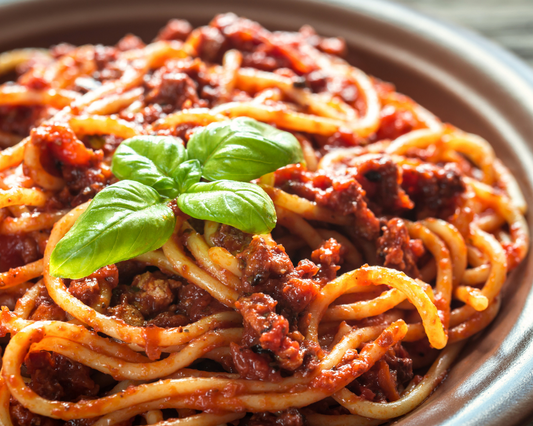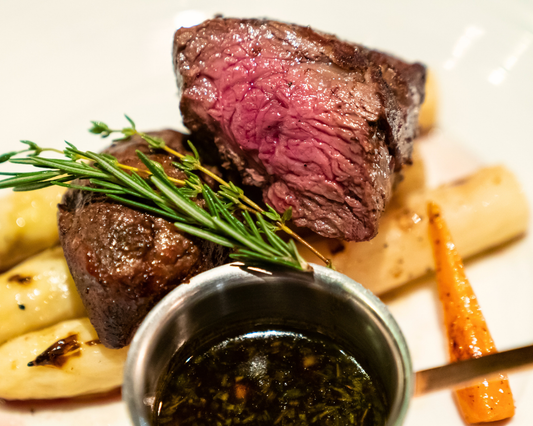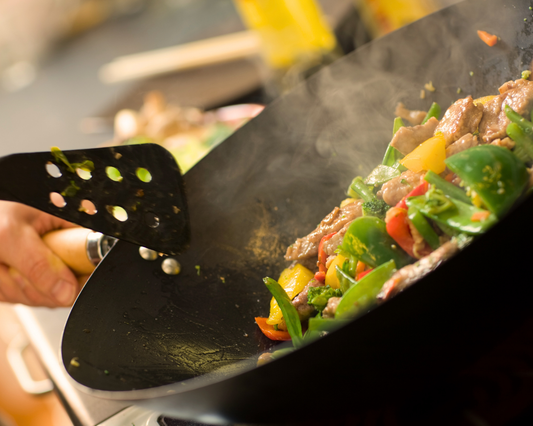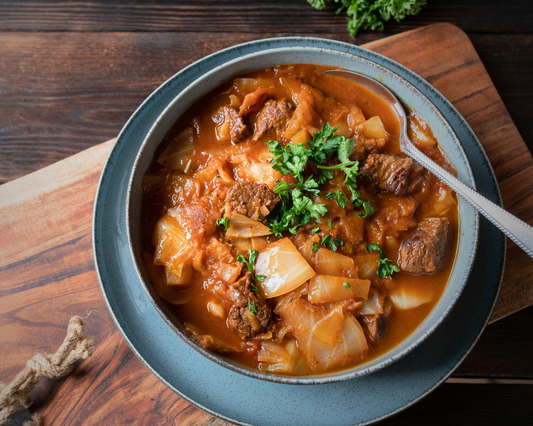The way an animal is raised has a huge effect on how it tastes.
Animals raised in high-stress environments produce meat that is tough and tasteless. Happy animals, on the other hand, produce meat that is tender and tasty.
But short of asking the animal yourself, how can you be sure that the meat you buy comes from happy animals?
What can cause stress in animals?
Just like humans, animals are stressed by:
- Overcrowding
- Strangers
- Diet (not enough food, or the wrong kind)
- Change
- Excitement
- Fighting
- Noise
- Temperature
Imagine: Put yourself at a party full of people you don’t know. The room is packed way past capacity, and you struggle to navigate through the crushing sea of bodies. Someone has cranked the furnace – you can feel the sweat dripping down your back already. You’ve barely eaten all day, and the last appetizer is snatched greedily off the plate in front of you. Suddenly, a loud and overly personal fight breaks out between a married couple behind you. Someone smacks into you, spilling your sticky drink down your shirt with no apology.
How would you be feeling?
Probably not too peachy.
By the time you leave the party, you will probably feel drained, irritable, and tense for hours. You may even feel a twinge of anxiety the next time someone invites you to a party, because experiencing that hellish nightmare over again is not overly appealing.
Cattle, pigs, and poultry raised using traditional methods will face all these stressors, often at once, over the course of their lifetime. Between lack or exercise and freedom, overcrowded feed lots and long-haul transports – for many traditionally-raised animals, high stress is a fact of life.
How does stress effect the taste of meat?
box_shadow_horizontal_tablet="0px" box_shadow_vertical_tablet="0px" box_shadow_blur_tablet="40px" box_shadow_spread_tablet="0px"]Stress, whether it comes from dehydration, hunger, fatigue, physical injury, or some other source, causes an entire cascading hormonal stress response. One of the big players in this response is adrenaline.
Adrenaline causes muscle tension, preparing the animal to respond – that’s the “fight or flight” response. Even when the stressor itself is gone; the adrenaline doesn’t simply vanish. It has to be gradually broken down and expelled. All that adrenaline can change the chemical composition of the muscle itself – it becomes more acidic, stringy, and loses good protein.
None of that translates into “delicious”.
How can you make sure your meat comes from happy animals?
Look for meat that is pasture raised, free range, fed a natural diet, and raised without antibiotics or added hormones. Meat that meets this criteria is more likely to have been raised in a less stressful environment.
However, the only way to truly know how your meat is raised is to know exactly where it comes from.
The meat at most grocery stores has very limited traceability. Even with substantial digging, it is unlikely you will be able to determine which particular farm your steak came from. The tracking systems simply don’t allow for it.
Buying from small-scale producers means you can ask directly how their animals are raised, fed, transported, and slaughtered. In fact, many of the small-scale producers share that information right on their website.
For example, these beef tenderloins come right from the rolling hills of Saskatchewan, at Qu’apelle Farms.
This beef is raised naturally and slowly on the lush prairie fields of the Qu’Apelle valley by seasoned Canadian ranchers. 100% grass fed, raised with no growth hormones or antibiotics. These are some happy cows, and the difference in taste and texture is abundantly clear.











